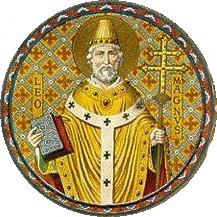
“How Marvelous the Power of the Cross”
And when I am lifted up from the earth, I will draw everyone to myself.” He said this to indicate how he was going to die.
John 12:32-33 (NLT)
How marvelous the power of the cross; how great beyond all telling the glory of the passion: here is the judgment-seat of the Lord, the condemnation of the world, the supremacy of Christ crucified (1 Cor. 2:2).
Lord, you drew all things to yourself so that the devotion of all peoples everywhere might celebrate, in a sacrament made perfect and visible, what was carried out in the one temple of Judea under obscure foreshadowings.
Now there is a more distinguished order of Levites, a greater dignity for the rank of elders, a more sacred anointing for the priesthood, because your cross is the source of all blessings, the cause of all graces. Through the cross the faithful receive strength from weakness, glory from dishonor, life from death. The different sacrifices of animals are no more: the one offering of your body and blood is the fulfillment of all the different sacrificial offerings, for you are the true Lamb of God: you take away the sins of the world. In yourself you bring to perfection all mysteries, so that, as there is one sacrifice in place of all other sacrificial offerings, there is also one kingdom gathered from all peoples.
Dearly beloved, let us then acknowledge what Saint Paul, the teacher of the nations, acknowledged so exultantly: This is a saying worthy of trust, worthy of complete acceptance: Christ Jesus came into this world to save sinners (1 Tim. 1:15).
God’s compassion for us is all the more wonderful because Christ died, not for the righteous or the holy but for the wicked and the sinful, and, though the divine nature could not be touched by the sting of death, he took to himself, through his birth as one of us, something he could offer on our behalf. The power of his death once confronted our death. In the words of Hosea the prophet: Death, I shall be your death; grave, I shall swallow you up (Hosea 13:14). By dying he submitted to the laws of the underworld; by rising again he destroyed them. He did away with the everlasting character of death so as to make death a thing of time, not of eternity. As all die in Adam, so all will be brought to life in Christ (1 Cor. 15:22-26).
St. Leo the Great, Sermon LIX (On the Passion, VIII.: on Wednesday in Holy Week.)
HT: Universalis
